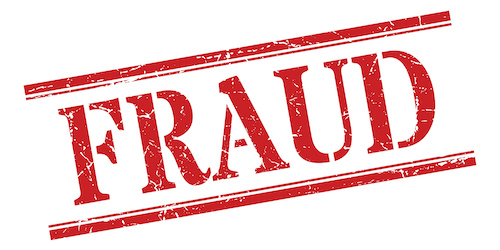In 1974, Ushakant Patel and Indira Patel (no relation) met in India while attending college. They fell in love and started a passionate romantic relationship. But when Ushakant proposed marriage, Indira did not accept and the two grew apart. Ushakant and Indira both ended up immigrating to the United States independently. In the later 1990s, Indira answered an advertisement in the newspaper concerning the sale of a convenience store. She left a message and when it was returned, it was none other than Ushakant. They rekindled their mutual affection, and had an affair that lasted for more than a decade.
It was in 2003 that Indira Patel applied and was approved for a lease to a sizable building located in the heart of Bay Ridge in Brooklyn, New York, at the intersection of 4th Avenue and 86th Street. The building contained two stores and two apartments. Indira took over one of the commercial areas that housed a convenience store. When her father fell ill, in 2004, her trusted confidant, Ushakant, agreed to start managing the building and had his sister run Indira’s convenience store.
In October of 2008, Ushakant Patel, unbeknownst to Indira, forged documents that transferred ownership of all of Indira’s business’s assets and the building’s lease. Indira argued that the business and lease were transferred by Ushakant without her explicit permission by forging Indira’s signature on the related transfer documents, making the documents fraudulent, and therefore a legal nullity. In response, Ushakant maintained that not only had Indira given him permission to sign on her behalf but that she had given him permission in the past for other documents related to the business and the building.
Attorneys Peter S. Gordon and Jason S. Matuskiewicz of Gordon & Gordon represented Indira in seeking compensation for the fraud perpetrated on her. Ultimately, the jury was asked whether Indira had authorized Ushakant to sign the transfer documents on her behalf. The jury answered in the negative and awarded Indira $286,000 for the value of her business when it was transferred. Another $50,000 sum was representative of the security deposit that Indira gave the building owner, which was also transferred as a result of the fraud.
After Attorneys Peter S. Gordon and Jason S. Matuskiewicz helped Indira obtain a verdict in her favor, Ushakant sought to have the decision overturned in the Supreme Court of New York. Ushakant argued that there was no “legally sufficient evidence” to support any claims of business fraud. Their primary points were: it wasn’t proven that Ushakant knowingly made any false representation to Indira; the misrepresentation wasn’t proven to be for the purpose of convincing Indira to trust it; no evidence supported the idea that Indira relied strongly on the misrepresentation; nothing corroborated the claim that she received damage as a result.
Unfortunately for Ushakant, if the conclusion of the jury could have been reached by a “valid line of reasoning” given the available evidence provided at trial, then there was no justification to legally rule out the initial verdict. In other words, as long as the jury’s decision was found to be a “fair interpretation” of the provided evidence, then the verdict would stand. Ushakant’s attorney argued that Indira wasn’t fraudulently induced into giving Ushakant permission to sign the papers. However, Attorneys Peter S. Gordon and Jason S. Matuskiewicz cogently argued that Indira’s complaint was quite different.
Instead, Indira claimed that the event was an example of fraud in the factum. Because the documents transferring ownership were forgeries, they constituted fraud in fact, and the Court denied Ushakant’s request for the initial verdict to be thrown out. Attorneys Peter S. Gordon and Jason S. Matuskiewicz showed that Indira had provided sufficient evidence to show that the defendant didn’t have permission to sign the transfer documents on behalf of Indira, and that the transaction was fraudulent.
Ushakant also argued that a professional assessor wasn’t present at trial to offer an expert opinion. Evidence provided at trial, however, was able to show that Indira was offered $280,000 for the business by a willing buyer. Courts have determined that what a willing buyer is offering for a business in question provides a sensible line of reasoning to determine what that business is worth.
In the end, the Supreme Court of New York denied Ushakant’s motion that the jury’s initial verdict be set aside due to being in contrast to the evidence. With the legal expertise of Gordon & Gordon, Indira was able to get justice in this incident of small business fraud and has been compensated as a result.

